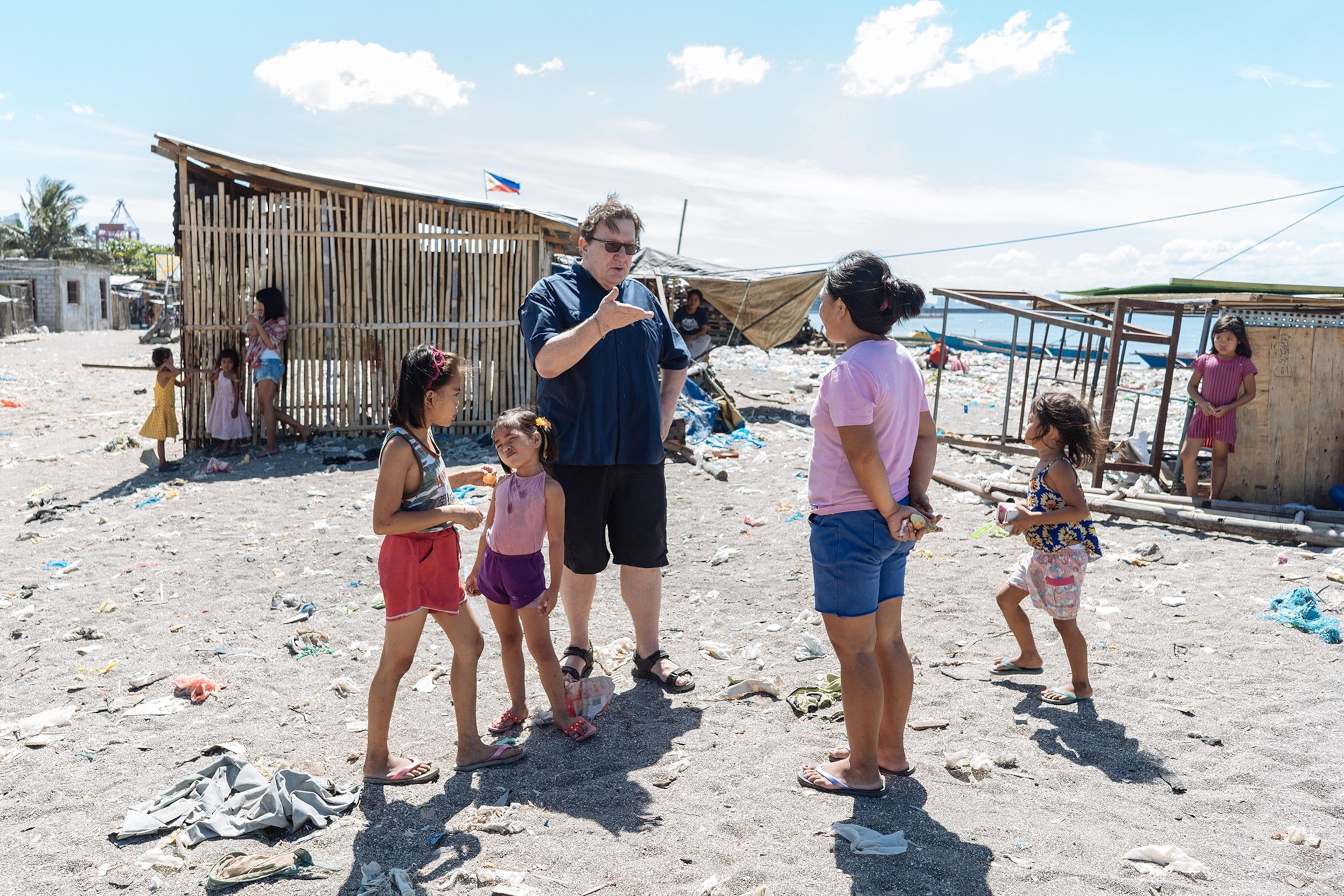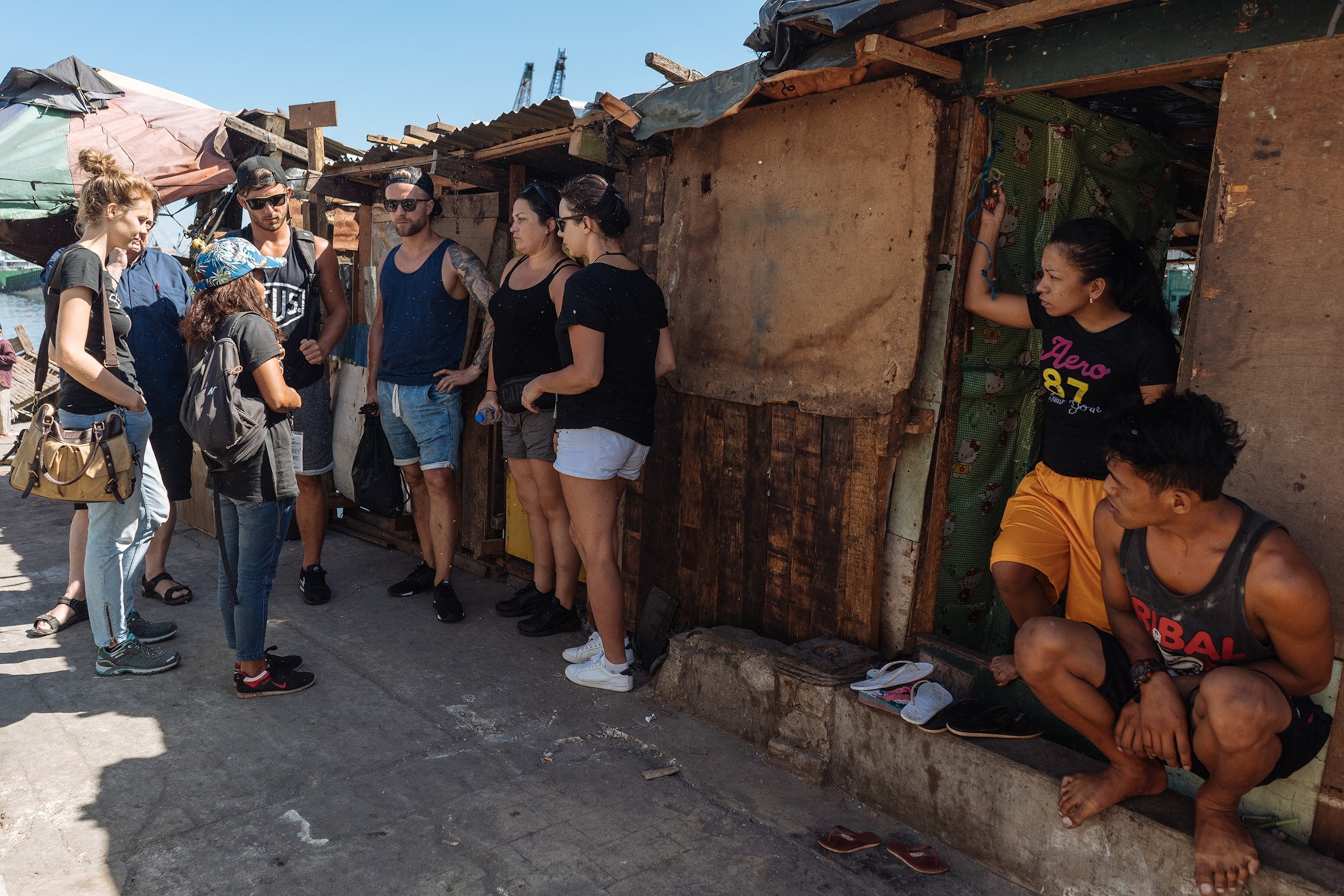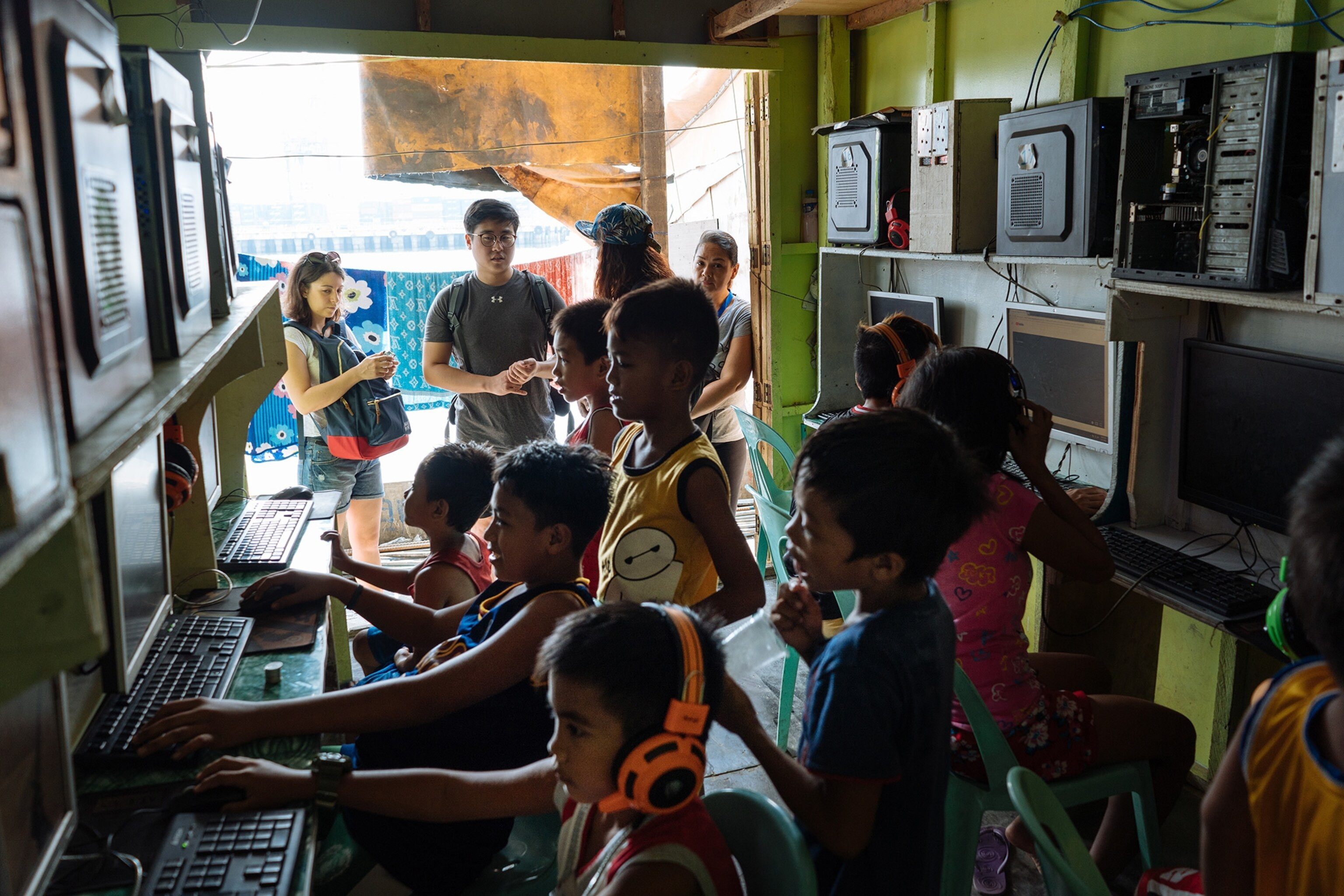Ghetto Tourism, also known as slum tourism, is the practice of visiting impoverished areas, often with the intention of witnessing poverty firsthand. SIXT.VN acknowledges the complexities surrounding this form of travel in destinations like Vietnam and aims to provide insightful perspectives. By understanding the motivations and potential impacts, travelers can make informed decisions about engaging with such experiences.
1. Understanding Ghetto Tourism
1.1 What is Ghetto Tourism?
Ghetto tourism involves visiting impoverished urban areas, aiming to observe and understand the living conditions and culture of the residents. It’s a form of niche tourism that has sparked significant ethical debates. Ghetto tourism can also be referred to as slum tourism, poverty tourism, or reality tourism, depending on the specific focus and intent of the tours.
1.2 Historical Context of Slumming
“Slumming,” an early form of ghetto tourism, emerged in the 19th century when wealthy individuals visited impoverished areas of London and New York City for amusement or charitable purposes. According to the Oxford English Dictionary, “slumming” in the 1860s meant visiting slums for discreditable purposes. In September 1884, The New York Times reported that “‘Slumming’ will become a form of fashionable dissipation this winter among our Belles, as our foreign cousins will always be ready to lead the way.”
1.3 Modern Forms of Ghetto Tourism
Today, ghetto tourism takes various forms, including guided tours through slums, favelas, and townships in cities around the world. These tours aim to provide insights into the daily lives of residents and the challenges they face. Modern ghetto tourism seeks to raise awareness and sometimes contribute to local economies.
2. The Ethics of Ghetto Tourism
2.1 The Controversy Surrounding Ghetto Tourism
Ghetto tourism is highly controversial, with critics arguing that it exploits the poor and turns their lives into a spectacle for privileged tourists. Concerns include the potential for voyeurism, the lack of respect for residents’ privacy, and the commodification of poverty. Ethical tourism practices emphasize respect, dignity, and community benefit.
2.2 Arguments Against Ghetto Tourism
Some critics view ghetto tourism as a form of exploitation, where tourists gawk at the less fortunate without contributing meaningfully to their well-being. There are also concerns that these tours can reinforce negative stereotypes and dehumanize residents. According to Dr. Melissa Nisbett of King’s College London, poverty was ignored, denied, overlooked, and romanticized.
2.3 Arguments in Favor of Ghetto Tourism
Proponents argue that ghetto tourism can raise awareness about poverty, challenge stereotypes, and provide economic benefits to local communities. Tours can educate outsiders about the realities of life in impoverished areas and foster empathy. Additionally, some tour operators donate a portion of their profits to local initiatives.
3. The Impact of Ghetto Tourism on Local Communities
3.1 Potential Benefits for Residents
When conducted responsibly, ghetto tourism can bring economic opportunities to impoverished communities. These may include employment as tour guides, sales of local crafts, and increased patronage of local businesses. According to studies, tours can help support local economies by directing tourist spending to small businesses.
3.2 Potential Drawbacks for Residents
However, ghetto tourism can also have negative impacts, such as disrupting daily life, increasing traffic and noise, and reinforcing feelings of shame or stigma. Additionally, if not managed properly, it can lead to the commodification of local culture and the loss of authenticity. Over-tourism can strain local resources and infrastructure.
 A slum tour in the Baseco community in Manila, Philippines
A slum tour in the Baseco community in Manila, Philippines
Ghetto tourism can offer insights into marginalized communities. Alt text: Exploring the Baseco community in Manila, Philippines, during a guided ghetto tour, offering a glimpse into the daily lives and challenges of its residents.
3.3 Case Studies: Positive and Negative Impacts
In some cases, ghetto tourism has led to community empowerment and improved living conditions. For example, Reality Tours and Travel in Mumbai directs 80 percent of its profits to community development projects. Conversely, poorly managed tours can lead to exploitation and resentment.
4. Ghetto Tourism in Vietnam: A Balanced Perspective
4.1 Poverty Tourism in Vietnam
In Vietnam, the concept of ghetto tourism may manifest in tours that explore the lives of marginalized communities, such as those living in informal settlements or rural areas. These tours aim to showcase the challenges and resilience of these communities. However, it is essential to approach such tours with sensitivity and respect.
4.2 Ethical Considerations for Tourists in Vietnam
When considering a tour of this nature in Vietnam, it is crucial to prioritize ethical considerations. This includes choosing tour operators that prioritize community benefits, respecting residents’ privacy, and avoiding activities that exploit or demean the local population. Cultural sensitivity is key to ensuring a positive impact.
4.3 Responsible Tour Operators in Vietnam
SIXT.VN encourages travelers to seek out tour operators in Vietnam that adhere to responsible tourism practices. These operators work closely with local communities to ensure that tours are conducted ethically and that benefits are shared equitably. Responsible tourism emphasizes sustainability and community involvement.
5. Ethical Guidelines for Ghetto Tourism
5.1 Respect for Privacy and Dignity
The most important guideline is to respect the privacy and dignity of residents. Avoid taking photos without permission, and be mindful of the impact your presence has on their daily lives. Ethical tours prioritize respectful interactions and minimize intrusion.
5.2 Supporting Local Economies
Choose tours that support local economies by employing local guides, purchasing goods and services from local businesses, and contributing to community development projects. Directing your spending to local enterprises helps ensure that tourism benefits the community.
5.3 Avoiding Voyeurism and Exploitation
Be aware of the potential for voyeurism and exploitation, and choose tours that focus on education, cultural exchange, and mutual understanding. Avoid tours that treat poverty as a spectacle or that reinforce negative stereotypes. Responsible tourism promotes dignity and empowerment.
 A slum tour in the Baseco community in Manila, Philippines
A slum tour in the Baseco community in Manila, Philippines
Tours must respect residents’ privacy and dignity. Alt text: During a ghetto tour of Manila’s Baseco community, participants observe daily life, emphasizing respect for residents and their environment, promoting ethical tourism.
5.4 Seeking Educational Opportunities
Look for tours that provide opportunities to learn about the history, culture, and socio-economic challenges of the community. Education is key to fostering empathy and understanding. Responsible tours offer context and encourage meaningful interactions.
5.5 Contributing to Community Development
Consider tours that contribute to community development through donations, volunteer work, or other forms of support. Giving back to the community can help offset any negative impacts of tourism. Sustainable tourism aims to create lasting positive change.
6. Alternatives to Traditional Ghetto Tourism
6.1 Community-Based Tourism
Community-based tourism (CBT) offers an alternative approach that prioritizes community involvement and benefits. CBT initiatives are owned and managed by local communities, ensuring that tourism revenues are reinvested in local development.
6.2 Cultural Exchange Programs
Participating in cultural exchange programs can provide a more immersive and respectful way to learn about different cultures and lifestyles. These programs often involve homestays, language lessons, and opportunities to engage in meaningful interactions with local residents.
6.3 Volunteer Tourism
Volunteer tourism allows travelers to contribute directly to community development projects while gaining firsthand experience of local life. However, it is important to choose reputable organizations that prioritize community needs and avoid perpetuating dependency.
7. The Role of Tour Operators in Ethical Ghetto Tourism
7.1 Transparency and Accountability
Ethical tour operators should be transparent about their operations, including how they allocate profits and engage with local communities. Accountability is essential to building trust and ensuring that tours are conducted responsibly.
7.2 Community Involvement
Tour operators should involve local communities in the planning and management of tours, ensuring that their voices are heard and their needs are met. Community participation is key to creating sustainable and equitable tourism initiatives.
7.3 Training and Education for Guides
Tour guides should be well-trained and knowledgeable about the history, culture, and socio-economic context of the communities they visit. They should also be equipped with the skills to facilitate respectful and meaningful interactions between tourists and residents.
7.4 Monitoring and Evaluation
Tour operators should regularly monitor and evaluate the impact of their tours on local communities, making adjustments as needed to ensure that they are benefiting residents and minimizing negative impacts. Continuous improvement is essential to responsible tourism practices.
8. Practical Tips for Tourists Considering Ghetto Tourism
8.1 Researching Tour Operators
Before booking a tour, research the operator’s reputation, ethical practices, and community involvement. Look for reviews from other travelers and seek recommendations from reputable sources.
8.2 Preparing for the Tour
Learn about the history, culture, and socio-economic context of the community you will be visiting. This will help you approach the tour with sensitivity and respect.
8.3 During the Tour: Best Practices
- Dress modestly and respectfully.
- Ask permission before taking photos.
- Engage in respectful and meaningful interactions with residents.
- Support local businesses by purchasing goods and services.
- Avoid making judgments or comparisons.
- Be mindful of your impact on the environment and local resources.
8.4 After the Tour: Reflection and Action
Take time to reflect on your experience and consider how you can continue to support the community. This may include donating to local initiatives, raising awareness about the issues they face, or advocating for policy changes.
9. The Future of Ghetto Tourism
9.1 Trends and Developments
The future of ghetto tourism will likely be shaped by increasing awareness of ethical issues and a growing demand for responsible tourism practices. There may be a shift towards more community-based and culturally sensitive tours.
9.2 The Role of Technology
Technology can play a role in promoting ethical ghetto tourism by providing platforms for responsible tour operators to connect with travelers and by facilitating transparent communication and feedback.
9.3 Policy Recommendations
Governments and tourism organizations can play a role in regulating ghetto tourism and promoting ethical practices. This may include setting standards for tour operators, providing training for guides, and investing in community development projects.
10. SIXT.VN: Your Partner for Ethical Travel Experiences in Vietnam
10.1 Our Commitment to Responsible Tourism
SIXT.VN is committed to promoting responsible tourism in Vietnam. We partner with local communities and tour operators to offer ethical and sustainable travel experiences. Our goal is to ensure that tourism benefits local residents and preserves their cultural heritage.
10.2 Services Offered by SIXT.VN
We offer a range of services to help you plan your trip to Vietnam, including:
- Consultation: Tailored travel itineraries that respect local cultures and support sustainable practices.
- Airport Transfers: Safe and reliable airport transfers to ensure a smooth start to your journey.
- Hotel Booking: Accommodation options that prioritize ethical and sustainable practices.
- Tour Booking: Carefully selected tours that benefit local communities and promote cultural exchange.
- Flight Booking: Assistance with booking flights that minimize environmental impact.
10.3 How SIXT.VN Ensures Ethical Practices
We conduct thorough due diligence to ensure that our partner tour operators adhere to ethical practices. We also provide training and resources to help them improve their sustainability and community engagement.
 A slum tour in the Baseco community in Manila, Philippines
A slum tour in the Baseco community in Manila, Philippines
Ghetto tourism must address complex political, historical, and economic issues. Alt text: Participants on a ghetto tour in Manila’s Baseco community observe the local environment, prompting reflection on the complex political, historical, and economic challenges faced by its residents.
10.4 Call to Action: Plan Your Ethical Trip with SIXT.VN Today
Ready to explore Vietnam in a responsible and ethical way? Contact SIXT.VN today to start planning your trip. Our expert team will help you create a unique and meaningful travel experience that benefits local communities and preserves their cultural heritage.
Address: 260 Cau Giay, Hanoi, Vietnam
Hotline/Whatsapp: +84 986 244 358
Website: SIXT.VN
FAQ About Ghetto Tourism
1. What is the difference between ghetto tourism and slum tourism?
Ghetto tourism and slum tourism are often used interchangeably to describe the practice of visiting impoverished urban areas. The terms highlight the intention of observing poverty and the lifestyles of marginalized communities.
2. Is ghetto tourism ethical?
The ethics of ghetto tourism are highly debated. It can be ethical if conducted responsibly, with respect for residents, support for local economies, and a focus on education and cultural exchange. However, it can be unethical if it exploits residents, reinforces negative stereotypes, or treats poverty as a spectacle.
3. How can I ensure my ghetto tour is ethical?
To ensure your ghetto tour is ethical, choose tour operators that prioritize community benefits, respect residents’ privacy, and avoid activities that exploit or demean the local population. Support local businesses and contribute to community development projects.
4. What are the potential benefits of ghetto tourism for local communities?
Potential benefits include economic opportunities (employment as tour guides, sales of local crafts), increased awareness of their challenges, and support for community development projects.
5. What are the potential drawbacks of ghetto tourism for local communities?
Potential drawbacks include disruption of daily life, increased traffic and noise, reinforcement of feelings of shame or stigma, and commodification of local culture.
6. What is community-based tourism?
Community-based tourism (CBT) is an approach to tourism that prioritizes community involvement and benefits. CBT initiatives are owned and managed by local communities, ensuring that tourism revenues are reinvested in local development.
7. What is volunteer tourism?
Volunteer tourism involves travelers contributing directly to community development projects while gaining firsthand experience of local life. Choose reputable organizations that prioritize community needs and avoid perpetuating dependency.
8. How can technology play a role in ethical ghetto tourism?
Technology can provide platforms for responsible tour operators to connect with travelers, facilitate transparent communication and feedback, and promote ethical practices.
9. What is SIXT.VN’s approach to ethical tourism in Vietnam?
SIXT.VN is committed to promoting responsible tourism in Vietnam. We partner with local communities and tour operators to offer ethical and sustainable travel experiences, ensuring that tourism benefits local residents and preserves their cultural heritage.
10. How can I book an ethical tour with SIXT.VN?
Contact SIXT.VN through our website or hotline to consult with our expert team. We will help you create a unique and meaningful travel experience that benefits local communities and preserves their cultural heritage.



